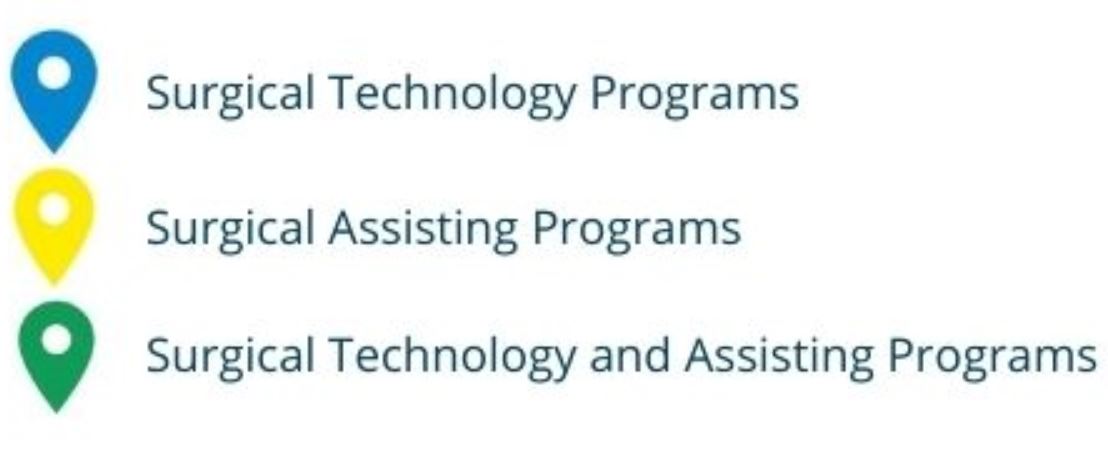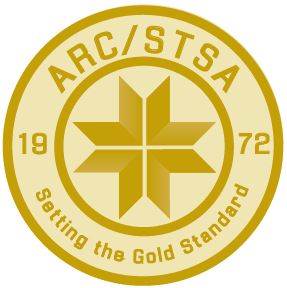About ARC/STSA
Since 1972, the ARC/STSA has set the gold standard for higher education programs in surgical technology and surgical assisting.
The ARC/STSA is a private, non-profit accreditation services agency that provides national recognition for more than 400 higher education programs in surgical technology and surgical assisting in collaboration with the Commission on Accreditation of Allied Health Education Programs (CAAHEP). The mission of the ARC/STSA is to provide accreditation services to our communities of interest that validate excellence of educational programs in order to advance the professions and ensure quality patient care.
Serving as a CAAHEP Committee on Accreditation, the ARC/STSA is the largest programmatic accreditor of surgical technology and surgical assisting programs, and the only national recognition for surgical technology and surgical assisting programs sponsored by the American College of Surgeons (ACS) and Association of Surgical Technologists (AST).
History and Role
The profession of surgical technology developed during World War II when there was a critical need for assistance in performing surgical procedures and a shortage of qualified personnel to meet that need. Individuals were educated specifically to assist in surgical procedures and to function in the operative theatre.
In December 1972, the Council on Medical Education of the American Medical Association (AMA) adopted recommended educational standards for the profession of surgical technology, leading to the formation of the Accreditation Review Committee on Education in Surgical Technology (ARC-ST). Specialized accreditation of programs in surgical technology began in 1974, implementing standards of compliance developed in collaboration by the American College of Surgeons (ACS) and the Association of Surgical Technologists (AST). In September 1994, the ARC-ST incorporated as a 501c3 and became one of the member Committees on Accreditation (CoA) within the Commission on Accreditation of Allied Health Education Programs (CAAHEP). Specialized accreditation of education programs in surgical assisting began in 2000, and the ARC-ST formed the Subcommittee on Accreditation in Surgical Assisting (SASA) to review program compliance and formulate accreditation recommendations to the ARC-ST Board of Directors. On August 1, 2009, the ARC-ST formally changed its name and logo to accurately reflect the full scope of accreditation services provided in both surgical technology and surgical assisting, becoming the Accreditation Review Council on Education in Surgical Technology and Surgical Assisting (ARC/STSA). In 2017, the ARC/STSA formed Education & Accreditation Resource, LLC, to better provide education opportunities and accreditation guidance to their accredited programs, sponsoring institutions, and the surgical technology and surgical assisting communities it serves.
Currently, the ARC/STSA Board of Directors consists of ten representatives, five appointments from AST (four surgical technology educators and one surgical assisting educator), and two surgeon representatives appointed by the ACS. The ARC/STSA appoints one public member, one allied health dean and one surgical technology educator.
The ARC/STSA, ACS and AST cooperate to establish, maintain, and promote appropriate standards of quality for educational programs in surgical technology and surgical assisting. Educational programs recognized meet or exceed the Standards outlined in the Standards and Guidelines for Accredited Educational Programs in Surgical Technology and the Standards and Guidelines for Accredited Educational Programs in Surgical Assisting. These Standards are the minimum standards of quality used in accrediting programs that prepare individuals to enter the professions of surgical technology or surgical assisting. The extent to which a program complies with the Standards determines its accreditation status; therefore, the Standards constitute the minimum requirements to which an accredited program must maintain compliance.
Based on compliance with the Standards and the recommendation of the ARC/STSA, CAAHEP grants programmatic accreditation to surgical technology and surgical assisting programs. The Council for Higher Education Accreditation (CHEA), a non-governmental body which reviews and recognizes accrediting agencies, recognizes CAAHEP.
Specialized accreditation of a surgical technology or surgical assisting program involves thorough review of the program’s resources including faculty, student/faculty ratio, financial resources, physical resources, learning resources, admissions policies, student records, curriculum, student evaluation methods and programmatic outcomes. Only community, technical and junior colleges, universities, proprietary schools, branches of the military and hospitals that have the appropriate institutional accreditation may apply for specialized accreditation for their surgical technology and/or surgical assisting programs. Accreditation of surgical technology and surgical assisting programs is an on-going and outcomes – based process in which accredited programs must submit reports annually to ensure continuing compliance with established criteria. Comprehensive review of programs occurs via on-site evaluation at least once every 10 years.
Education and Accreditation
As of July 2020, there are more than 400 CAAHEP-accredited educational programs in surgical technology throughout the United States. Additionally, there are 14 accredited educational programs in surgical assisting. Accredited programs provide both classroom education, on-campus lab experience as well as supervised clinical experience. Didactic coursework includes medical terminology, anatomy and physiology, microbiology, and surgical pharmacology. In accredited programs, students gain a thorough knowledge of principles of patient preparation and care, surgical procedures, operative technique, surgical instruments and equipment, and the principles of asepsis. Surgical technology graduates are able to apply their academic preparation and extensive clinical experience in scrubbing to immediately assume the full range of responsibilities encompassed by the profession without additional cost to the employer. Surgical assisting graduates apply their knowledge and expertise in the advanced practice role of assistant to the surgeon during pre-operative, intra-operative and post-operative phases of surgical patient care.
Map Key


